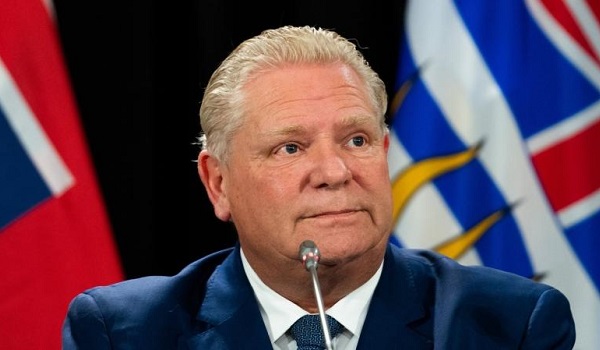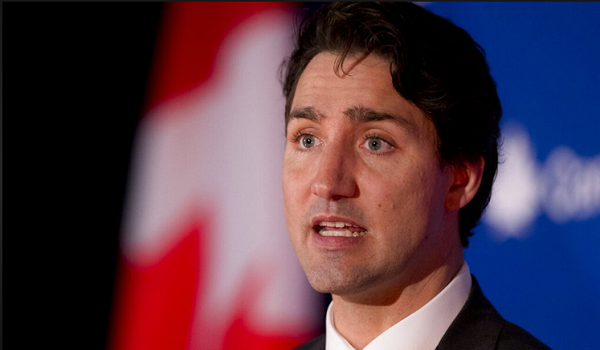Canadian government won’t rule out visa requirements for more countries apart from Mexico
The reimposition Thursday of a visa requirement for some Mexican visitors may not be the last move Ottawa makes to save Canada’s immigration system from buckling under the weight of historic numbers of asylum-seekers.
Immigration Minister Marc Miller said citizens of other countries may be subject to further restrictions, but rebuffed the notion the Liberal government was reversing course on its welcoming posture since coming to power in 2015.
Miller’s comments followed an announcement that, effective Thursday evening, Mexicans who could previously have come to Canada without a visa would now require one. That move was in response to record numbers of failed asylum claims from Mexicans — and demands from Quebec, Ontario and the United States for Ottawa to stem the flow of asylum-seekers from Mexico.
The move echoes one in 2009 by Stephen Harper’s Conservative government, which also cited a need to curb asylum claims by Mexicans after a year in which there were more than 9,000, making up nearly a quarter of all of those filed. The majority were rejected as unfounded.
By contrast, of the 137,947 claims sent to the Immigration and Refugee Board last year, 25,236 were from Mexicans. Of those heard, the majority were either rejected, withdrawn or abandoned.
Miller said those figures made it clear there was a problem with the system, and the government had a “duty” to take action.
“When you see those numbers, you realize that we have a role to in playing in adjusting the volume and the measures that we take on intake into Canada,” he said.
Harper’s move in 2009 followed a broader retooling of Canada’s refugee policy, framed as a crackdown on “bogus” refugee claimants that his government alleged were deliberately using Canada’s policies as a way to access free health care and other social services. It argued that unfounded claims were placing an unfair burden on Canada’s social support networks and depriving others of care
and access, as well as gumming up the immigration system.
Critics accused the Harper Tories of xenophobia, and some of their policy changes were ultimately struck down by the Federal Court.
On Thursday, Conservative Leader Pierre Poilievre said Thursday’s change was overdue, even as Miller defended the Trudeau government’s immigration policies to date.
“The impression has been that the Liberal government has just flung the doors wide open,” he said in French.
“That’s not true. We’ve always supported the integrity of the system.”
The demand for changes, however, is being driven by some Harper-era concerns, with Quebec and Ontario demanding help as they face mounting costs to shelter and support asylum-seekers.
Quebec Premier François Legault said Thursday he was pleased with the decision, but that Ottawa must go further to address the growing number of temporary residents and asylum-seekers in his province, who he said are putting a strain on health care and housing.
“What do we do with the 528,000 temporary immigrants and 160,000 asylum-seekers that we currently have?” Legault asked.
Meanwhile, the United States has exerted political pressure of its own, with repeated requests for Canada to address a rising number of Mexicans arriving in Canada and then trying to get into the U.S.
Foreign Affairs Minister Melanie Joly said she has discussed the issue with her American and Mexican counterparts, and thinks the solution is a good one because it also involves expanding Mexico’s access to Canada’s seasonal worker program.
“At the end of the day, what we want is a stronger relationship with Mexico and a stronger relationship with Canada,” Joly said.
For its part, Mexico was not impressed.
“Mexico regrets this decision and believes that there were other options available before putting this measure in place,” the country’s Foreign Affairs Ministry said in an online statement Thursday.
“Mexico reserves the right to act in reciprocity.”
In 2009, Mexico imposed a tit-for-tat visa requirement on Canadian diplomatic personnel — but not on other Canadian citizens, given the impact that might have had on Mexico’s tourism sector.
With upwards of 156,000 refugee claims outstanding at the end of 2023, and thousands more already added this year, Miller acknowledged that the time it takes to process claims is getting ever longer.
How Canada will manage the flow is difficult to figure out, he said, but he gave a clear “yes” when asked if other visa restrictions are being considered — and “no” when asked if changes to asylum criteria were also being contemplated.
Mexico stands alone among countries with high rejection rates for asylum-seekers because its nationals haven’t, until now, needed a visa.
Even with Thursday’s changes, some 60 per cent of those coming from the country to Canada still won’t need one.
Citizens of countries with high rejection numbers — India is second on that list — already require visas to come to Canada.
Meanwhile, people from countries where allegations of persecution are high — including Turkey, Nigeria and Colombia — have high rates of acceptance, and they already require visas to come here.
“These are people who are fleeing war and oppression and other issues,” Miller said, “so we need to take that into account and not violate the rights of people.”
With files from The Canadian Press
This article was reported by The Star












